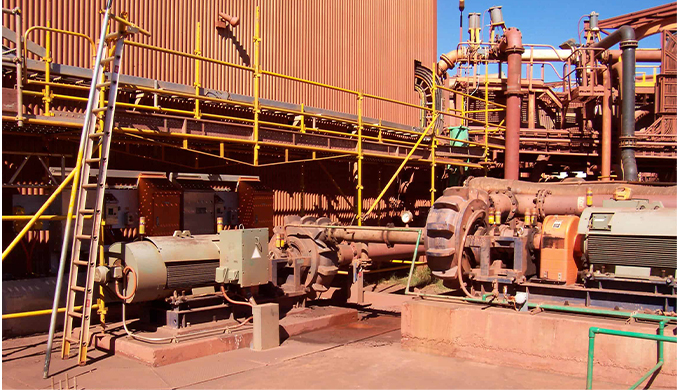Hebrew
- Afrikaans
- Albanian
- Amharic
- Arabic
- Armenian
- Azerbaijani
- Basque
- Belarusian
- Bengali
- Bosnian
- Bulgarian
- Catalan
- Cebuano
- Corsican
- Croatian
- Czech
- Danish
- Dutch
- English
- Esperanto
- Estonian
- Finnish
- French
- Frisian
- Galician
- Georgian
- German
- Greek
- Gujarati
- Haitian Creole
- hausa
- hawaiian
- Hebrew
- Hindi
- Miao
- Hungarian
- Icelandic
- igbo
- Indonesian
- irish
- Italian
- Japanese
- Javanese
- Kannada
- kazakh
- Khmer
- Rwandese
- Korean
- Kurdish
- Kyrgyz
- Lao
- Latin
- Latvian
- Lithuanian
- Luxembourgish
- Macedonian
- Malgashi
- Malay
- Malayalam
- Maltese
- Maori
- Marathi
- Mongolian
- Myanmar
- Nepali
- Norwegian
- Norwegian
- Occitan
- Pashto
- Persian
- Polish
- Portuguese
- Punjabi
- Romanian
- Russian
- Samoan
- Scottish Gaelic
- Serbian
- Sesotho
- Shona
- Sindhi
- Sinhala
- Slovak
- Slovenian
- Somali
- Spanish
- Sundanese
- Swahili
- Swedish
- Tagalog
- Tajik
- Tamil
- Tatar
- Telugu
- Thai
- Turkish
- Turkmen
- Ukrainian
- Urdu
- Uighur
- Uzbek
- Vietnamese
- Welsh
- Bantu
- Yiddish
- Yoruba
- Zulu
Telephone: +86 13120555503
Email: frank@cypump.com
נוב . 06, 2024 04:10 Back to list
Water Pumps and Electric Solutions for Clean Water Supply and Sustainability
The Importance of Clean Water Pumps and Electric Systems
Access to clean water is a fundamental human right, essential for health, agriculture, and industry. In many regions, the availability of clean water is not guaranteed, leading to a pressing demand for efficient water pumping systems. Clean water pumps play a crucial role in ensuring that communities, farms, and industries have access to safe water. When combined with electricity, these systems become even more effective, driving advancements in technology that contribute to sustainable water management.
The Role of Clean Water Pumps
Clean water pumps are engineered to transport safe drinking water from its source—be it a well, river, or reservoir—directly to communities and households. These pumps vary in size and capacity, catering to different needs. For instance, large agricultural operations may require extensive pumping systems to irrigate crops, while rural communities may need smaller, more localized systems to provide drinking water.
The effectiveness of clean water pumps comes from their ability to remove contaminants and deliver water at the appropriate pressure. Modern water treatment processes often involve filtration and disinfection systems that work in tandem with pumps. As a result, the delivered water is not only accessible but also safe for consumption.
The Impact of Electric Systems
Electricity is indispensable in the operation of clean water pumps. Traditionally, these systems relied on manual labor or diesel generators, which are less efficient and can contribute to pollution. The advancement of electric water pumps has revolutionized the way we access clean water. Electric pumps are not only more efficient in terms of energy consumption, but they also require less maintenance compared to their traditional counterparts.
Moreover, the use of electric systems allows for automation and remote monitoring. With the rise of smart technology, water management systems can now be controlled remotely, allowing for real-time monitoring of water quality and delivery. This technology ensures that the pumps operate optimally, reducing energy wastage and minimizing the risk of breakdowns that can disrupt water supply.
clean water pump and electric

Sustainability and Future Innovations
As the global population continues to grow, the demand for clean water will only increase. Consequently, there is a pressing need for sustainable methods of water extraction and distribution. The integration of renewable energy sources, such as solar or wind power, with clean water pumps presents a promising solution. Solar-powered pumps, for example, are particularly beneficial in remote areas where electric grids are not accessible. These systems significantly reduce operating costs and decrease reliance on fossil fuels.
Innovations in pump design and technology also contribute to sustainability. More efficient pump designs can help reduce energy consumption, while advanced materials can enhance durability and reduce maintenance requirements. Additionally, water recycling technologies are increasingly being integrated with pumping systems, allowing for the reuse of water in irrigation or industrial processes.
Challenges and Solutions
Despite the clear benefits, there are challenges in implementing clean water pump systems and electric technologies. In many developing regions, the initial investment for advanced pumping systems and electric infrastructure can be prohibitively high. However, various organizations and governments are working to provide funding and resources to overcome these obstacles. Partnerships with non-governmental organizations (NGOs) and private companies can facilitate the development and deployment of clean water projects.
Education is also crucial. Communities need to be trained on the maintenance of these systems to ensure longevity and efficiency. Empowering local populations with knowledge and skills around water management can lead to more sustainable practices.
Conclusion
Clean water pumps, powered by electricity and enhanced with modern technology, are vital components in the quest for universal access to safe drinking water. As we face the challenges of climate change and population growth, investing in these systems becomes increasingly important. The collaboration between governments, NGOs, and the private sector will be pivotal in developing innovative solutions that ensure clean water accessibility for all. With continued focus on sustainability and technological advancement, we can create a future where clean water is within reach for every person on the planet.
-
High-Performance Air Pumps for Sand & Gravel | Efficient Transport
NewsAug.03,2025
-
ISG Series Vertical Pipeline Pump - Chi Yuan Pumps Co., LTD.|Energy Efficiency, Corrosion Resistance
NewsAug.03,2025
-
ISG Series Pipeline Pump - Chi Yuan Pumps | Energy Efficiency&Compact Design
NewsAug.03,2025
-
ISG Series Vertical Pipeline Pump - Chi Yuan Pumps Co., LTD.|High Efficiency, Low Noise, Durable
NewsAug.02,2025
-
ISG Series Vertical Pipeline Pump - Chi Yuan Pumps | High Efficiency, Low Noise
NewsAug.02,2025
-
ISG Series Vertical Pipeline Pump- Chi Yuan Pumps Co., LTD.|High Efficiency&Compact Design
NewsAug.02,2025










